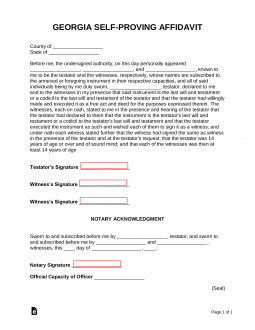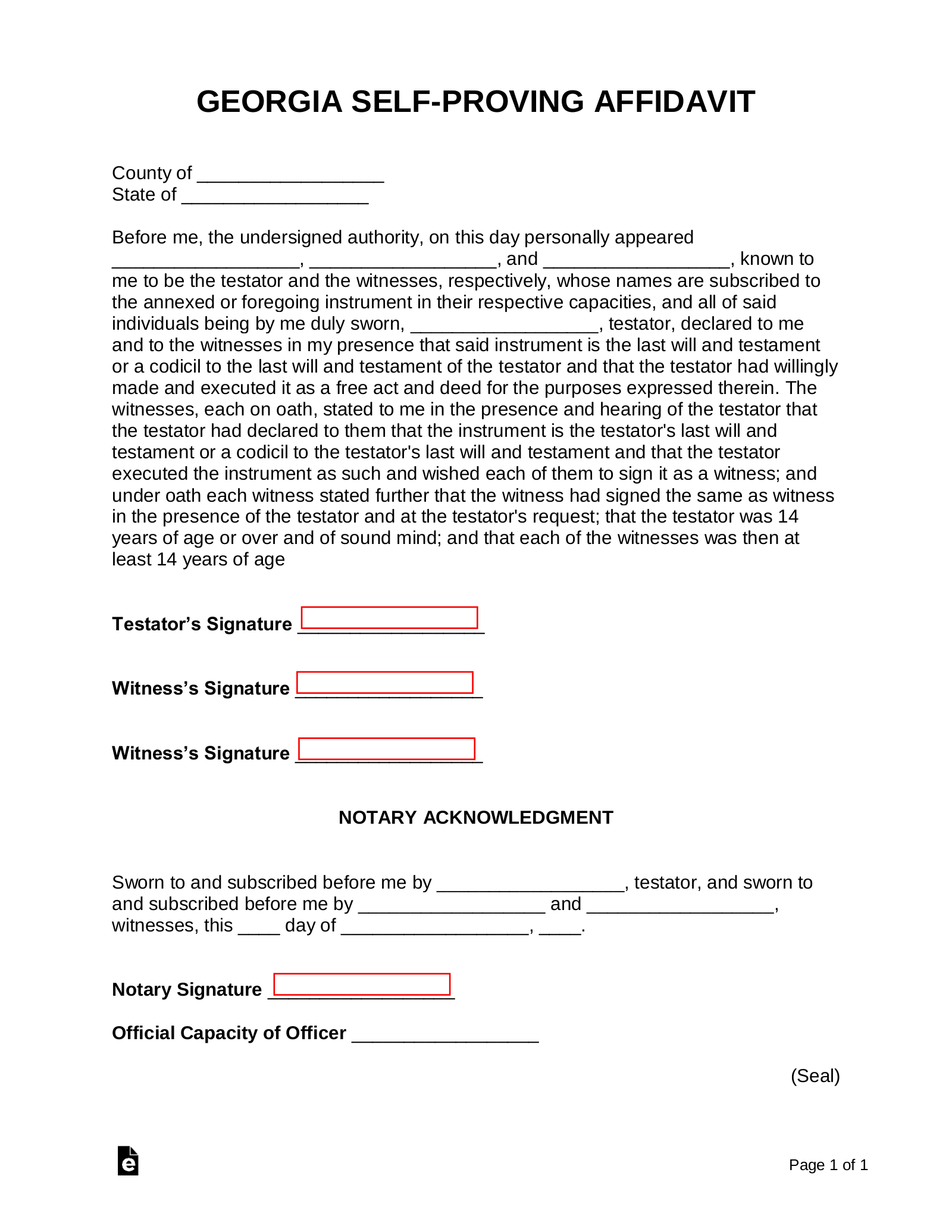Updated July 18, 2023
A Georgia self-proving affidavit is a legal tool that is used to affirm the accuracy of the statements made in a last will and testament. The individual who chooses to create a will, known as the “testator,” can benefit from the incorporating of a self-proving affidavit as it proves to the probate court that their will is legal and true. Additionally, the execution of a self-proving affidavit renders it unnecessary for the attesting witnesses to appear in court after the testator dies. The testator will be required to sign the affidavit in the presence of two (2) witnesses and a notary public.
Laws
- Statute – § 53-4-24
- Signing Requirements– Two (2) witnesses and a notary public.


